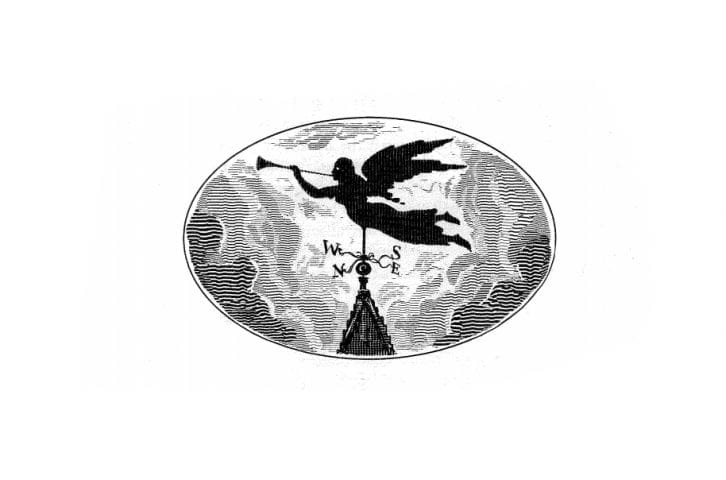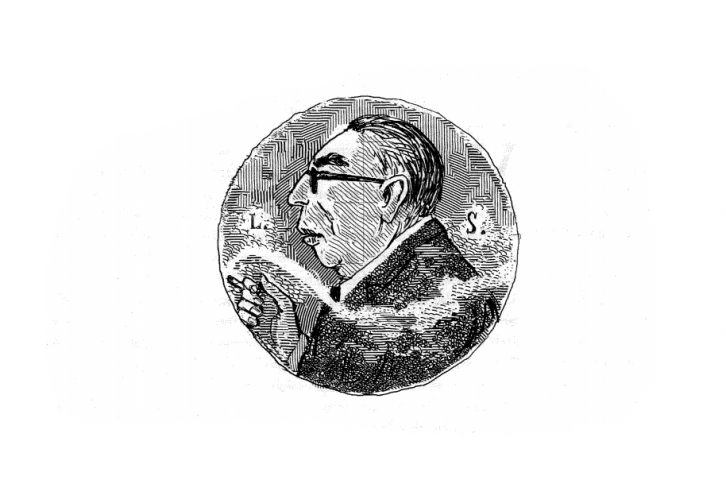Books Reviewed
It is not uncommon to hear that modern America is “Wilsonian.” This is no doubt true, and in more ways than many people realize. When modern-day Wilsonianism is invoked, it is usually in reference to our foreign policy. Even President Bush, in a speech in London last year, mentioned Wilson’s idealism favorably, before calling in his own name for “the global expansion of democracy.”
But less well known is how much America’s current domestic politics and political self-understanding also have their roots in the thinking of our 28th president. Wilson was one of the first American statesmen to criticize the American Founding in general, and the Declaration of Independence and the Constitution in particular. This critique was a necessary part of the Progressive movement’s aim to enlarge vastly the scope of the national government. This aim was achieved in the 20th century—if not completely in Wilson’s own day—and it is this achievement that defines American politics over the last seventy years. For those of us who question the wisdom of this development, an understanding of Wilson’s contribution to it—both in the domestic and international realms–ought to be of high importance.
H.W. Brands’s Woodrow Wilson devotes most of its attention to Wilson’s contributions to American foreign policy, remaining nearly silent on the role Wilson played in turning the nation away from its original constitutional thinking. Part of Arthur M. Schlesinger, Jr.’s “American Presidents” series for Times Books, Brands’s account corresponds to much of the historical scholarship on Wilson. As far as it goes, it is a solid and even well-written account, subject to all the limitations of the conventional scholarship.
With some important differences and exceptions, the historical accounts paint Wilson as a typical Southerner in many respects—orthodox in his religious views and generally conservative in his politics and economics—who underwent a remarkable transformation when he became President and became caught up in the currents of the Progressive movement. Many historians also portray Wilson—rightly—as someone who enlarged the role and importance of the presidency in American politics. This new role, they argue, was a natural product of the times and circumstances into which Wilson was thrust, and most cite it as a good and necessary development in American constitutionalism.
More recently, a school of interpreters (whose names will be familiar to readers of this journal) has written on Wilson with a much more critical eye. Contrary to the standard historical accounts, political scientists like Paul Eidelberg, James Ceaser, Jeffrey Tulis, Robert Eden, Charles Kesler, and Scot Zentner have characterized Wilson as a dangerous departure from the sound thinking of the American Founders.
* * *
Whether dangerous or not, there is no doubt that Wilson was a sharp critic of both the political theory of the American Founding, and of the institutional design necessitated by it. In particular, Wilson loathed the principles of the Declaration of Independence, which lays out ends of government that are transhistorical and universal, not contingent upon historical circumstance. The Declaration says that the purpose for which “Governments are instituted among Men” is to secure “certain unalienable Rights.” These rights do not come from history or tradition, and therefore they do not vary as history moves forward. Wilson well understood that such an understanding permanently limited government to the relatively narrow task of securing individual rights to life, liberty, and property, and that such a limited government could never be put to the much broader mission that Progressives had in mind for it. And so Wilson argued that “we are not bound to adhere to the doctrines held by the signers of the Declaration,” and he even urged that if the Declaration must be celebrated, we should do so by ignoring its universal statements about equality and natural rights: “The rhetorical introduction of the Declaration of Independence is the least part of it…. If you want to understand the real Declaration, do not repeat the preface.” It was a grave problem, Wilson said, that “some citizens of this country have never got beyond the Declaration of Independence.”
Wilson also knew that the two main features of the Constitution that were designed to keep government focused on its limited task of preserving natural rights—federalism and the separation of powers—had to be overcome if progressives were to unfetter the national government. Hence Wilson criticized the “checks and balances” logic of the Constitution by describing it instead as a “living” or “organic” instrument; “no living thing,” warned Wilson, “can have its organs offset against each other, as checks, and live.”
Wilson’s criticism of the Declaration and Constitution was grounded in the historicism that he had imbibed in the 1880s from his teachers at Johns Hopkins and elsewhere, all of whom had been trained in Germany and in the tradition of Hegel. This is, no doubt, what inspired Wilson’s famous 1886 essay, “The Study of Administration,” in which Hegel is mentioned by name. In this seminal essay, Wilson called for a specially educated class of bureaucratic experts who would administer the progress of the state, largely independent of interference from traditional constitutional politics.
* * *
Wilson made many of his critiques of American constitutionalism during his prolific academic career, when he wrote extensively on American government and political theory. Yet these critiques are almost entirely ignored in the conventional histories, and here Brands is no exception. This is why many historians, Brands among them, make the mistake of characterizing the marked expansion of federal power during Wilson’s presidency as some kind of departure from his previously-held, conservative beliefs. Here historians are often misled by the rhetoric of the 1912 campaign, when Wilson’s New Freedom program was cast as a defense of individual liberty against Roosevelt’s more overtly paternalistic New Nationalism. Wilson, in this view, is cast as the “Jeffersonian” defender of states’ rights and limited government while Roosevelt is considered a “Hamiltonian,” particularly because of his desire to expand the discretionary power of administrative agencies in order to regulate the trusts.
Thus when Brands describes the policies of the Wilson presidency, which greatly expanded national administration along the very lines that Roosevelt had called for in the 1912 campaign, he speaks in terms of “Wilson’s conversion to the New Nationalism” (my emphasis). Wilson’s embrace of independent regulatory commissions is described as a new direction in which Wilson turned in order to respond to unforeseen events. Brands explains that “the more he learned about the intricacies of antitrust law, the more he tilted toward giving the commission idea a chance.” This, along with the economic downturn in late 1913, supposedly forced the reluctant Wilson to expand national administrative power.
And this is where the omission of any consideration of Wilson’s lengthy writings on the state or administration really hurts the analysis, because anyone familiar with “The Study of Administration” or his other writings from the 1880s and 1890s would not find Wilson’s “conversion” to national administrative power to be the least bit surprising or, for that matter, a conversion at all. Wilson’s policies as president were, instead, quite consistent with the political and constitutional theory that he had been writing about for over 20 years. His position against national administrative power in the 1912 campaign was an anomaly, necessitated by a desire to differentiate himself from his main opponent and to appeal to the Bryan wing of the Democratic party, whose crucial role in Wilson’s victory Brands explains quite capably.
* * *
For Brands, however, it is really foreign policy that defines Wilson. Fully two-thirds of the book deals with foreign policy crises from the Mexican intervention forward, and in this regard the book is quite good, even if Brands’s account of Wilson’s idealism could very much have benefited from an appreciation of Wilson’s lifelong historicism.
Brands does a nice job, in particular, of showing that Wilson considered himself to be the embodiment of the will of humanity. The author comments accordingly on the acclaim Wilson received during his first post-war trip to Europe: “In his addresses in America, Wilson had often claimed to speak for the peoples of the world; this uproarious reception confirmed his conviction that he was the tribune of humanity.” And Brands similarly brings out this sentiment in his description of Wilson’s speaking tour on behalf of the League of Nations, citing speeches where Wilson “claimed a mandate from the American people.”
Not only was Wilson, in his own mind, a visionary leader and the tribune of humanity, but American democracy under his leadership was the beacon for the progress of all nations, the very embodiment of righteousness. Brands cites Wilson’s speech in which, defending his initial reluctance to enter the war, Wilson explained that “there is such a thing as a nation being so right that it does not need to convince others by force that it is right.” Anyone who resisted America’s role as Wilson conceived it was swimming upstream and resisting the weight of all history, as Brands shows in this speech from Wilson’s campaign for the League: “Any man who resists the present tides that run in the world will find himself thrown upon a shore so high and barren that it will seem as if he had been separated from his human kind forever.”
No doubt Brands’s presentation of such strikingly arrogant claims would make more sense if it were connected to a discussion of Wilson’s historicist doctrine of leadership. This is a doctrine where, as Kesler and others have shown, Wilson understood himself as possessing a particularly keen insight and saw himself as the mediator between humanity and its own future. But given the intentions of the book, it is probably enough to take in Brands’s solid account of the facts and draw one’s own conclusions. Brands does seem to have some appreciation for the importance of Wilson’s progressivism when he explains that, at the peace table, “a basic philosophical difference separated Wilson from his European counterparts…. Wilson remained a progressive, and as such an optimist regarding human nature. The crimes of humanity—crimes including the war just ended—he ascribed to bad leadership and maladaptive institutions, not to any intrinsic human penchant for evil.”
It is important to understand that Woodrow Wilson is, in keeping with the books in this series, a short and rather popular account. And while its discussions are carefully documented, it is not really a scholarly book, Schlesinger’s claims in the preface notwithstanding. It is, in sum, a solid account of the foreign-policy aspects of Wilson’s presidency, but a book that could have distinguished itself by recognizing Wilson’s importance to the American political tradition and his considerable role in the 20th-century rejection of traditional American constitutionalism.




